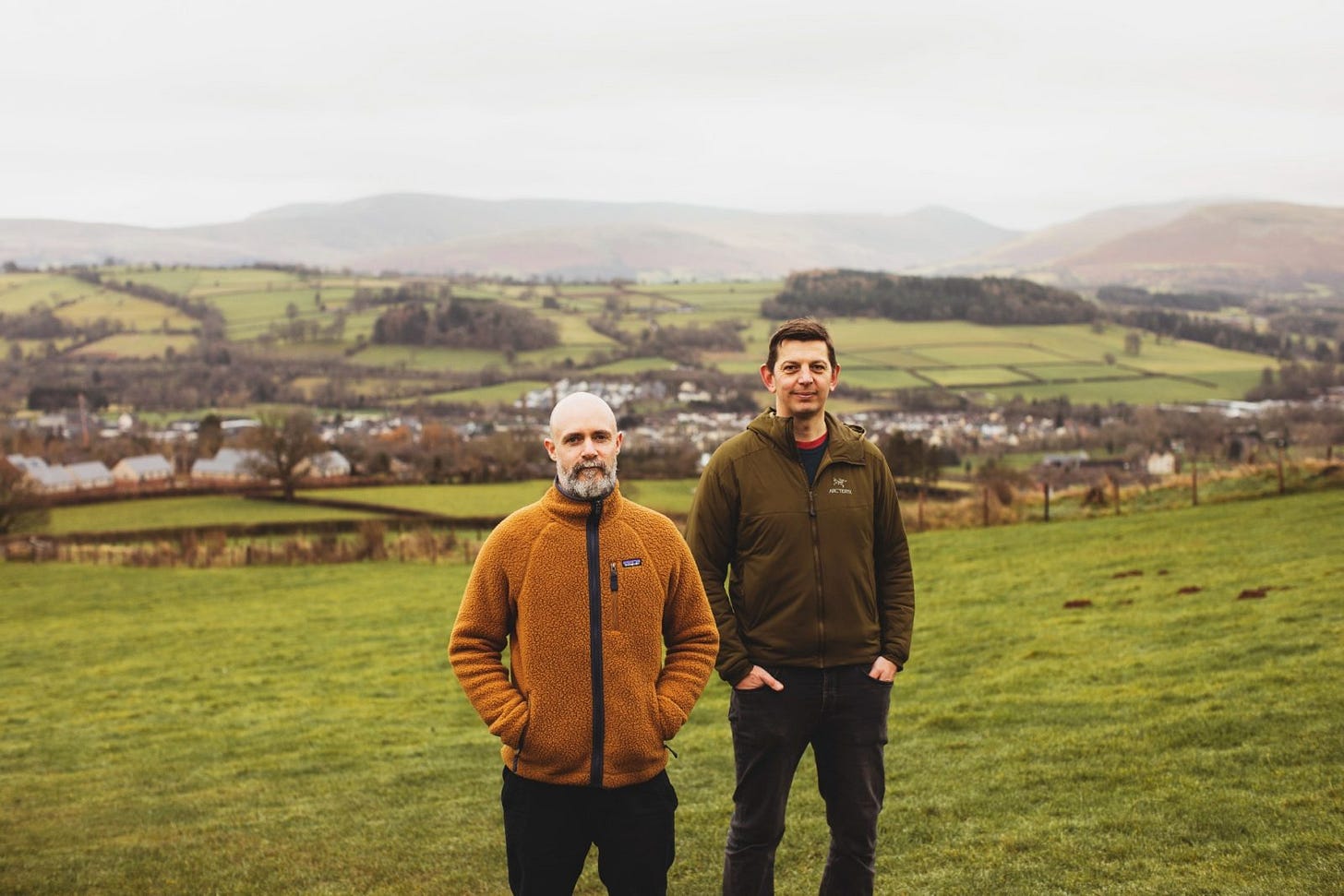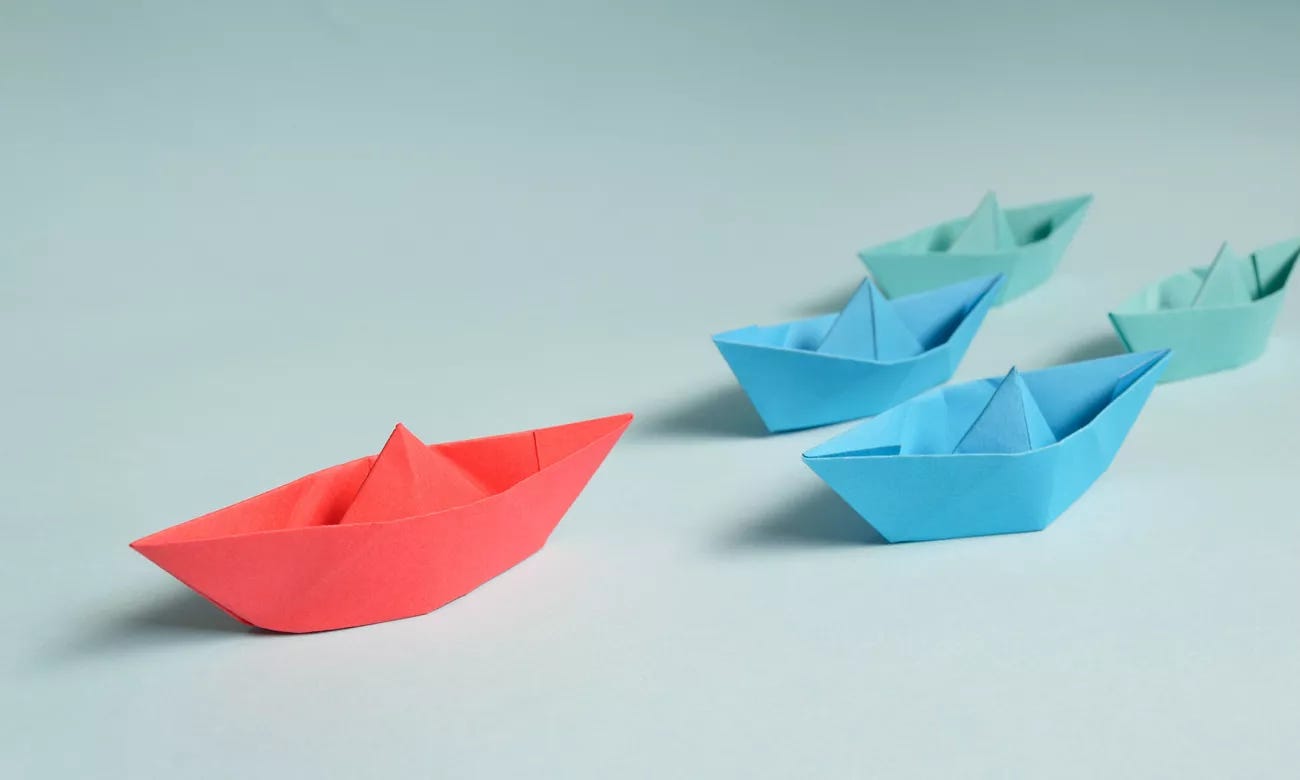🌱 Is your business 'Future Fit'? Be inspired by 5 key steps, and Dryad's 5 key goals.
Featuring Dryad, The Body Shop, Koa, Naturaw, Willicroft and more...
Happy Monday!
This week we cover:
Dryad: Fresh out the box, and ticking all the boxes.
Future-Fit Business is betting on scientific methods to help businesses build a better world.
In case you missed it: Behind the B Corp: Words of advice from 3 B Corp Project Managers, by Laura Matz, Lead B Corp Consultant at Greenheart Consulting.
> Good News Last Week
🎯 Swiss-Ghanaian start-up Koa announced a $10m raise to scale up their upcycled cocoa production capabilities in Ghana. The new factory will help the company extend its cocoa fruit upcycling to an additional 10,000 farmers, generating 250 new jobs in rural Ghana.
🎯 Naturaw has certified B Corp, becoming the first raw pet food brand to do so.
🎯 Willicroft announced their €2M pre-seed round. Founded as a dairy farm in the UK in 1957, Willicroft relaunched as a plant-based cheese company in 2018.
⭐️ Johnson & Johnson announced new paper-based refill cartons in its JOHNSONS’S Baby range. 1 tonne of plastic will reportedly be saved for every 11,202 refill packs sold. The company says that its carton design includes a step-by-step infographic to explain how to refill the existing plastic bottle, as well as a QR code customers can scan for video instructions and information on how to recycle their empty carton.
⭐️ eBay UK announced their exclusive partnership with Love Island. They’re the first ever pre-loved fashion partner for the hit TV show, taking over from previous partners like I Saw It First and Missguided, to promote a ‘eat, sleep, rewear, repeat’ mentality.
⭐️ Aldi announced they’re removing plastic wrap from all multipacks of own-label beans, saving an estimated 78 tonnes of single-use plastic a year. They’re trialling a multi-buy discount at purchase instead.
⚡️ Plastics Recyclers Europe reported a 13% increase in installed plastics recycling capacity in 2020. They identified over 650 recycling facilities across Europe, with research including 27 EU countries and UK, Norway, and Switzerland.
⚡️ WRAP announced new Courtauld 2030 Scope 3 Measurement & Reporting Protocols for UK Food & Drink businesses. A market-first, the Protocols will mean faster progression towards achieving the Courtauld 2030 GHG target of delivering a 50% absolute reduction in GHG emissions associated with food and drink consumed in the UK by 2030 (against a 2015 baseline). Leading Courtauld 2030 signatory businesses are already testing the Protocols during its pilot phase (from May 2022). Included in the new resources are supplier product footprint questionnaires.
> Click on each link to read more.
> Brand Spotlight
Dryad: Fresh out the box, and ticking all the boxes.
Sportswear brand Dryad is fresh out the box, launching only 6 months ago in December 2021, and this Abergavenny-based startup is already being talked about. Dryad’s products are impressive: repairable outdoor sportswear made to last, using majority second-life fibres. Part of a small but mighty wave of British brands disrupting the fast-fashion tide (check out our features on TALA and Finisterre for other great examples), it’s not this that makes them so uniquely exciting. It’s the fact that they’re the embodiment of the movement to make the consumer goods industry environmentally and socially good. Let’s dig into how.
The Covid-19 pandemic has made it all too clear the extent to which public health, environmental sustainability, community sustainability and wellbeing intersect. At Following the Footprints, we’ve highlighted the great work of hundreds of consumer goods brands to contribute to one or two of these areas. However, it’s often rare to find a business purpose-built to target this intersection directly.
Dryad’s 5 key goals show us that this is exactly what they’re doing:
To make the best sustainable women’s sportswear possible.
To be as transparent as possible with a fully traceable value chain ensuring that everyone that works on the products is treated fairly.
To allocate a proportion of profits to increase participation in sports for girls and women.
To provide local employment in Wales
To showcase the beautiful surroundings of the Brecon Beacons.
By their own admission, Dryad are on a ‘journey’ to meet these goals and aren’t completely there yet (let’s give them time, they are only 6 months old). They’re certainly already well on their way.
To implement Goal (1), Dryad partnered with Scottish Sportswear design agency SSEAMS to help them identify the highest quality, most sustainable materials possible to create genuinely long-lasting clothing. This is already having an impact on the materials they’re using, and the brand is also working with SSEAMS to create a ‘fixability’ repairs scheme to prolong the life of their garments. Dryad hasn’t been shy to get support, and it’s really paying off. As well as sponsorship by the Business Wales Accelerated Growth Programme (AGP), partnering with SSEAMS has helped them meet Goal (2), crucial to providing both environmental and social good. Speaking with BusinessLive, founder Matthew Thomas explained how working with an agency has been crucial:
“We want to make sure that everyone is treated fairly in our supply chains. This is just as important as having recycled content in our t-shirts… The agency designed the products to our specification and then helped us identify progressive textile mills”
This goal let Dryad carefully select the ideal manufacturer for them based on the strict criterion of transparency. In Dryad’s case, this was Portuguese manufacturer Petratex. Seemingly contradictory to Goal (4) - to provide local employment - Matthew went on to describe how bringing this manufacturing back to Wales is a long-term goal, one currently unattainable with the expensive machinery required to make high-quality sportswear (an issue faced by many SMEs). Once the brand is more established, this is when they can act on Goal (4). The intention is undoubtedly there:
“We want to build the best brand and find the community to support that brand and support them in turn”
For Goal (3), this ethos, and their dedication to gender equality, is woven into the fabric of Dryad as a company. By providing female-only clothing and actively funding womens’ sporting facilities, Matthew Thomas wanted overturn the trope of the male-first approach of the sports world. It’s his frustration at this trope that drove the company’s foundation in the first place, and yet another of the UN’s Sustainable Development Goals that Dryad seems to be ticking off with ease and sincerity.
As for Goal (5), to showcase the beauty of the Brecon Beacons, Dryad doesn’t need too much help - it comes naturally (if you will) across their communications.
Dryad is a consumer goods brand that inspires hope for the future of the fashion and apparel industry. They’re less than a year old and they’re already fundamentally community-focused, transparent, purpose-driven business. Initiatives like B-Corp have had a huge impact, kickstarting existing brands to make the shift to more sustainable practices, and it seems that one real dividend of this work is an increase in businesses who are built on these practices. Sustainability and ethical practices aren’t additions for Dryad, they’re part of their genetic makeup.
Support Dryad via their shop:
> Quick Take
Future-Fit Business is betting on scientific methods to help businesses build a better world.
Future-Fit Business was started to catalyse social and environmental justice, one business at a time. Founders Martin Rich and Geoff Kendall combined their experience in the sustainable finance and tech worlds to create a scientific approach to progress. The UK-registered charity’s idea of a ‘Future-Fit Society’ is backed by a unique methodology known as the Future-Fit Benchmark. Let’s dig into what this is, and how your business can get involved.
The Future-Fit benchmark is a unified methodology that ‘any business can use to guide, measure and report on real progress’. It’s comprised of:
Key principles of sustainability and equity
23 break-even goals that measure progress through minimum thresholds
Indicators to track goals, while identifying potential risks and trade-offs
Guides on how to establish effective policies, improve supply chains, and create circular product designs
The benchmark offers a way for brands to structure their intentions. Take it from The Body Shop, which has used Future Fit’s Positive Pursuits Guide to better describe how their Bio-Bridges project could lead to positive outcomes (read more here).
How can you get involved? Let’s take it step by step…
Businesses should explore the benchmark to learn more about its methodology. The resources offer a great way to learn about topics ranging from natural resource usage to the importance of social-economic inclusivity.
Once done reading through the benchmark topics, the crash-course videos offer an in-depth view of the importance of these selected topics. By watching these, you will learn about the flaws in some of the old-school methods, and how you should approach stakeholders to help make meaningful change.
Next, why not try out stress-testing your contribution to the United Nations Sustainable Development Goals. Progress in one area can be both beneficial and detrimental to other areas, so it is important to properly assess the impact of your business.
Looking for expert advice on this journey? Future Fit have put together a list of ‘Accredited Advisors’ to help you get the most out of their resources.
Keen to get more involved? Join the Changemaker Community to have access to further resources and connect with experts across the field. The community’s benefits and tools continue to grow, and by joining you can contribute to a Future-Fit Society.
Interested? Read on…
Read more about the Future-Fit Business Foundation
Check out what makes a Circular Business Model
Learn more about the UN Sustainable Development Goals
> In case you missed it
Behind the B Corp: Words of advice from 3 B Corp Project Managers
by Laura Matz, Lead B Corp Consultant at Greenheart Consulting.
> Follow up with…
Article: A world free from waste: How systems solutions make product repurposing possible
Article: Ethical Sourcing – What? How? Everything You Should Know In 2022
Case Studies: The Circular Collective - Circular Design and Economy
Tool: The Boundary Tool




